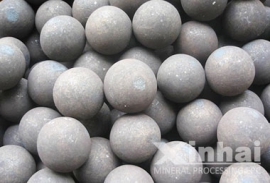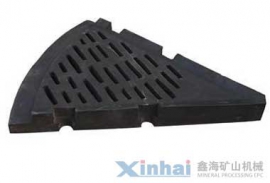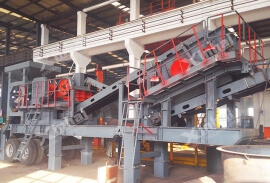In recent years, there are many mobile crushers in the crushing production of various industries. The functions of feeding, crushing, screening and other production processes are integrated into a single crushing plant, eliminating the crushing site, environment, complicated basic configuration and complicated logistics to bring crushing operations obstacles. Compared with the fixed crushing and screening equipment, the mobile crusher is like a movable small and medium-sized crushing and screening processing plant. It's working efficiency is even better than that of the fixed crushing station of the same level, so it is being accepted by more and more industries. The reason is still inseparable from the four major advantages of the mobile crusher itself.
Use the table of contents below to navigate through the guide:
011. Mobile Crusher - Lower Investment Costs
As mentioned above, a mobile crusher combines multiple production processes. Insiders know that the price of mobile crusher is indeed higher than that of fixed crushing and screening equipment. So why is the cost of a mobile crusher lower? In fact, the cost here does not only refer to equipment investment costs. In addition to equipment investment costs, fixed crushing and screening equipment requires a certain amount of manpower and material input in the production process, and requires a series of processes such as installation and infrastructure. The mobile crusher saves a large part of the manpower input, and fuel, The power consumption is lower, and the material input is also greatly reduced, so the investment cost of the mobile crusher is lower.
022. Mobile Crusher - Flexible and Time-saving
As far as the mobile crusher is concerned, its biggest highlight is mobile performance. This bright spot makes it essentially different from the fixed crushing and screening equipment. The mobile crusher can be opened to the mining site for operation, and can work normally at any site, breaking the limitations of the terrain, and the station can be started after a short time adjustment to meet the production requirements of different terrains. In addition, the mobile crusher has got rid of the complicated steel frame structure and foundation construction of the crushing and screening equipment, thus saving a lot of time.
033. Mobile Crusher - Various Models and Multiple Configurations
Usually, the mobile crusher can be used as an integrated unit or independently. In addition, the mobile crusher can perform equipment combination configuration and process configuration according to the user's production requirements, such as "first crushing and then screening", "first screening and crushing", "coarse crushing and fine crushing two-stage crushing and screening process", "coarse crushing" The medium-crushing and fine-crushing three-stage crushing and screening process has great flexibility.
044. Mobile Crusher - Reducing Material Transportation Costs
The mobile crusher can directly process the materials on site. There is no need to move the need-to-crush material to some specific processing site, thus greatly reducing the material transportation cost.
According to the moving mode, the mobile crusher on the market can be roughly divided into two types; one is a tire-type mobile crusher and the other is a crawler-type mobile crusher. So what is the difference between these two types of mobile crushers? How do we choose tire-type mobile crusher or crawler-type mobile crusher according to their characteristics?
051. Mobility of Mobile Crusher
In fact, the tire-type mobile crusher is not a complete mobile crusher, and its transitional movement needs to be docked with the semi-trailer tractor. The crawler-type mobile crusher usually adopts self-driving mode, so it is superior to the tire-type mobile crusher in terms of mobility.
062. Application Scope of Mobile Crusher
The tire-type mobile crusher adopts vehicle traction, which is more suitable for driving on ordinary roads and working areas, so it is widely used for material waste in construction waste treatment, infrastructure and road construction, construction and other industries. The crawler-type mobile crusher adopts modules. The structural design and the chassis are high in strength, and have better adaptability to harsh working environments such as mountains and wetlands, and even can realize climbing work. Therefore, its application range is more extensive, and it is mostly used for crushing and screening of mines.
073. The productivity of Mobile Crusher
The hydraulic leg of the tire-type mobile crusher under the frame has been fixed, which increases the stability of the equipment as a whole, and the good stability enables it to be equipped with large crushing and screening equipment. In other words, the tire-type mobile crusher can handle the crushing of large materials, and the working efficiency is extremely high; while the front end of the crawler-type mobile crusher is usually not fixedly arranged, and the stability is weak, which in turn causes the crushing ability to be lower than that of the tire-type mobile crusher.
In summary, both tire-type and crawler-type mobile crushers have their own characteristics. The mobile crusher's type of selection should take a lot of factors into consideration, including the user's production requirements, investment costs, processing materials, production conditions and other aspects. With the pursuit of efficiency and convenience, a mobile crusher will be applied to more industries. The fact that familiar with the characteristics of two types of mobile crushers can lie the foundation for current or future mobile crusher selection.


 marketing@ytxinhai.com
marketing@ytxinhai.com  0086 13810327080
0086 13810327080 






































































































 CHAT
CHAT MESSAGE
MESSAGE

